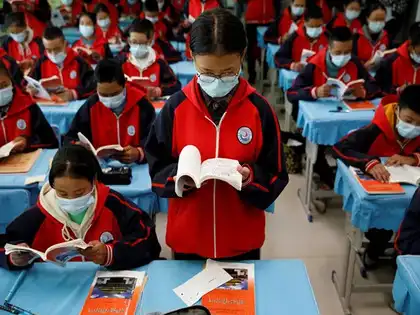China has announced that the Tibetan language will no longer be a core subject in the country’s national college entrance examination, or gaokao, a move that has drawn sharp criticism from Tibetan groups and human rights organizations.
At a press briefing in Beijing, Gama Cedain, chairman of the Tibet Autonomous Region (TAR) government and the region’s deputy party secretary, confirmed that the reform is aimed at “standardizing” exams across provinces by prioritizing Chinese, mathematics, and foreign languages such as English, Russian, Japanese, French, German, and Spanish. He argued that the change would “improve Tibetans’ career prospects” and provide “fairer access to high-quality education.”
However, Tibetan activists say the reform undermines the cultural and linguistic identity of Tibetans, who already face restrictions on language use in schools and workplaces. Under the new rules, Tibetan will only be available as an optional subject for students applying to specialized fields such as Tibetan literature—meaning only a small minority of students will study it at higher levels.
“Once you no longer have the Tibetan language in your entry exam, it ceases to be a practical skill for employment or professional growth,” Dawa Tsering, director of the Dharamshala-based Tibet Policy Institute, told Tibetan Review. Critics fear the absence of Tibetan in mainstream examinations will discourage students from learning it, while also leading to teacher reassignments or redundancies.
The announcement comes amid what observers describe as a broader campaign of “sinicization” under Chinese President Xi Jinping. Similar policies have been implemented in other minority regions such as Inner Mongolia and Xinjiang, where local languages were sidelined in favor of Mandarin.
UN human rights experts have previously urged Beijing to safeguard Tibet’s linguistic and cultural heritage, warning that such policies risk eroding minority identity. Nonetheless, Beijing continues to frame these reforms as “modernization” and “integration” into the national mainstream.
The decision underscores the Chinese government’s determination to align education in TAR more closely with Han Chinese norms, raising concerns about the survival of Tibetan as a living, professional, and cultural language.




